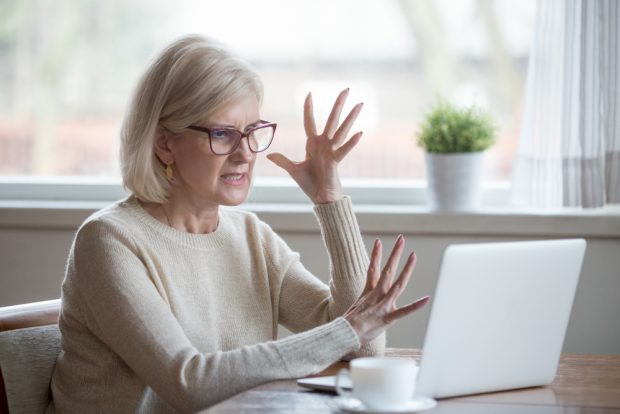As you get older, your body changes. During your 60s, you become more confident, wiser, and more comfortable with yourself. Also, at this age, your body and health are more crucial. Longevity Live Paid Content.
It is vital to keep your body and mind healthy. One way to prevent health conditions caused by being overweight and obese is to lose weight.
However, some things happen when you come of age, including losing weight. Your body usually needs less energy as you reach the age of 30. As you get older, losing weight is more difficult for more reasons.
This article will help you learn more about unexplained weight gain in your 60s and how to achieve your ideal weight.
Reasons It is More Difficult To Lose Weight in Your 60s
As you reach the age of 60, many things have changed in your body. That is why weight loss after the 60s becomes more challenging.
There are several reasons why losing weight is more difficult as you get older.
1. Hormonal changes
A decrease in estrogen and testosterone is part of the aging process. These sex hormones affect your body, causing symptoms like hair loss and slow metabolism.
Your body uses testosterone to make muscle. You lose muscle mass when your body produces less testosterone. As a result, it lowers your metabolism, making it more challenging to maintain your weight.
Additionally, these sex hormones affect where your body stores fat. If you have noticed, your waist size increases as you age. It is because of hormonal changes.
Furthermore, women commonly gain weight during menopause. Also, menopause causes mood fluctuations, making it more challenging to maintain regular exercise and healthy eating habits.
2. Slow metabolism
Your metabolism is responsible for making the food and drinks you consume into energy to make your body function. However, as you age, your metabolism slows down, which causes weight gain.
Additionally, your metabolism provides your body with the energy it requires to breathe, circulate blood, and repair cells even when sleeping.
When your metabolism slows down, you store more fat as you burn fewer calories.
3. Stress
Increased stress boosts your ghrelin level, contributing to weight gain. When stressed, you easily ignore your diet and reach for a snack or something sweet. This may lead your body to produce less testosterone.

fizkes/shutterstock
4. Muscle loss
Muscle helps burn calories. However, as you age, you lose muscle every year. The changes in your age-related cells cause a decrease in your muscle mass.
In addition, if you are less active due to health conditions like arthritis, or an injury, you may also lose muscle. Losing muscle mass also contributes to weight gain.
Muscle burns more calories. If you have fewer muscles, it would be harder to burn the calories you eat.
5. Chronic health conditions
Aging affects your health, increasing your risk of chronic diseases. Due to these conditions, many people can’t do physical activities.
Some people avoid physical activities as it causes pain. At the same time, others don’t know which activities are safe with their condition.
Therefore, it is best to discuss your activity options with your doctor.
Reasons Why Seniors Need To Lose Excess Weight
If you have reached the age of 60, it would be best for you to lose excess weight. Obesity and being overweight increase the risk of several health problems.
Some health conditions related to excess weight are cancer, cardiovascular disease, type 2 diabetes, hypertension, and osteoarthritis.
In addition, after 30, you may experience loss of cells in the kidneys, liver, muscle atrophy, and decreased bone density. Furthermore, the amount of water in your body lessens due to tissue loss.
Therefore, seniors must maintain a healthy body and lose excess weight.
8 Ways To Lose Weight in Your 60s
Although losing weight in your senior years can be difficult, it is vital to improve your health and quality of life.
Here’s what you need to do to lose weight and keep a healthy body.
1. Focus on fat loss
At 60, you should not focus on losing weight but instead on building more muscles. As you get older, you lose a percentage of muscle per year, which affects your metabolism and ability to eliminate body fat.
Additionally, your bones become weaker due to lower estrogen levels. Thus, it is vital to do weight-lifting exercises
Creating pressure on your joints helps build healthier and stronger bones. Therefore, focus on adopting a new strength training routine to build more muscles.
2. More protein
Adult people need more protein as they lose more muscle every year. Protein helps build muscle which boosts your metabolism. It also keeps you full for a longer period.
Foods such as whole eggs, fish, meat, and dairy are good protein sources. Adding them to your diet helps you build muscle and prevents you from eating unhealthy snacks.
Aim for getting in 1.2 grams to 1.4 grams of protein per pound of body weight every day. However, if you have trouble meeting your optimal protein intake through whole foods alone, you may try a high-quality protein powder to supplement your diet.
3. Eat enough calories
Those going through weight loss are advised to cut their calories. However, for seniors, this can backfire.
Calories are an energy source for our body, and they keep you full for a longer period. When your body feels it isn’t getting enough energy, your metabolism will go into starvation mode to conserve energy.
However, this will lead to muscle loss. As a senior, you have to maintain muscle for a healthy metabolism. Therefore, it is vital to consume enough calories every day.
Unfortunately, some seniors don’t get enough food and nutrients due to several factors. These include changes to their sense of taste and smell.
A reduced appetite is an indication of some health issues for seniors. Talk with your doctor if you don’t have much of an appetite.

Photo by Chris J Mitchell
4. Enhance your activity
Exercise is crucial for weight management. However, as you get older, you are more likely to be sedentary.
Older people generally move less and prefer to focus on doing everyday tasks. Some avoid doing exercises because they feel tired quickly.
People in their 60s should achieve 30 minutes of moderate-intensity aerobic exercise five days a week, and strength training two days a week.
Doing any physical activity can be good, but having a varied workout program is best. This will help you manage the hormonal changes caused by aging.
Some of the best weight loss exercises for those over the 60s are the following:
- Aerobic activity: this includes walking, swimming, and biking.
- Strength training: this includes lifting weights, using resistance bands, and doing push-ups.
- Stretching exercises: some of the stretching exercises you can do are neck roll, shoulder roll, standing hip rotation, and more.
- Balance exercises: this includes balancing on one foot, standing up from and sitting down on a chair, and more.
5. Get enough sleep
Loss of sleep can affect your metabolism, which causes weight gain. According to research, sleep deprivation increases the risk of obesity for seniors.
Practice going to bed at the same time every night. Avoid napping during the day so you can achieve the recommended seven to nine hours of sleep to manage your health and weight.
6. Do some relaxation
Stress causes weight gain for seniors. It also affects their metabolism.
If you are stressed, your body requires more energy to function. As a result, it affects your metabolism and triggers cravings for sweets.
It is essential to manage your stress to maintain your weight. Relaxation activities like yoga and meditation can help reduce stress and boost metabolism.
7. Drink plenty of water
Pay attention to your fluid consumption. It is vital to stay hydrated. Always try to have a bottle of water on hand.
Keep in mind that dehydration may also help increase the risk of obesity. Make sure to drink plenty of water every day.
8. Don’t ignore your health condition
You may experience some health conditions in your 60s. These may include diabetes and arthritis.
You may not be able to reverse these diseases, but you can prevent or delay their health complications.
Make sure to visit your doctor to discuss your health conditions and what you need to do to manage these issues. Also, always follow the doctor’s advice and maintain a healthy lifestyle.
Achieve Your Ideal Body Weight in Your 60s
Losing weight after your 60s may be challenging due to several factors. However, you can lose weight by exercising, eating enough proteins and calories, getting enough sleep, drinking lots of water, and managing your health conditions. Also, visit your doctor and discuss your plan for losing weight. Lastly, you must maintain a healthy lifestyle to keep good body weight.





![women [longevity live]](https://longevitylive.com/wp-content/uploads/2020/01/photo-of-women-walking-down-the-street-1116984-100x100.jpg)









